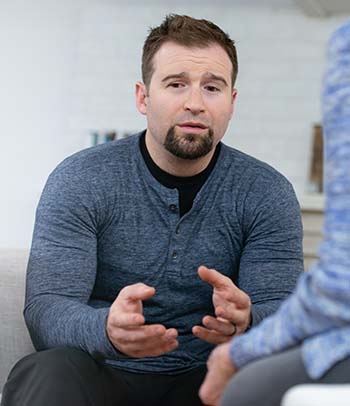National Post-Traumatic Stress Disorder (PTSD) Awareness Month is intended to raise public awareness about PTSD, reduce the stigma associated with PTSD and help ensure that those suffering from this condition receive proper treatment. The observance is marked by special events, promotions and campaigns committed to spreading a greater understanding of PTSD. Since 1980, the American Psychiatric Association has recognized PTSD as a diagnosable and treatable mental health condition. The PTSD diagnosis has filled an important gap in psychiatric theory and practice.
 What Is PTSD?
What Is PTSD?
The Centers for Disease Control and Prevention defines PTSD as an intense physical and emotional response to thoughts and reminders of a traumatic event that lasts for many weeks or months after the event. Events due to combat, accidents, disasters and abuse are just a few of the causes of PSTD.
According to the U.S. Department of Veterans Affairs (VA), there are currently about 12 million people in the United States with PTSD. Even though PTSD treatments work, most people who have PTSD do not get the help they need. Everyone with PTSD, whether they are Veterans or civilian survivors of traumatic events, needs to know that treatments really do work and can lead to a better quality of life.
If you’re a Veteran or Service member in crisis or you’re concerned about one, call the Veterans Crisis Line at 988 and press 1, or text 838255 for confidential assistance, 24/7.
What Is a Traumatic Event?
A traumatic event is an event or series of events that cause moderate to severe stress reactions. Traumatic events are characterized by a sense of horror, helplessness, serious injury or the threat of serious injury or death. In addition to affecting those who suffer injuries or loss, traumatic events affect survivors, rescue workers and friends and relatives of victims who have been directly involved. They may also affect people who have witnessed the event either firsthand or on television. According to the National Institute of Mental Health (NIMH), not everyone with PTSD has been through a dangerous event. Some experiences, like the sudden, unexpected death of a loved one, can also cause PTSD.
Experiencing trauma is not rare and PTSD can happen to anyone. It is not a sign of weakness that you are experiencing it or that you need support. Stress reactions immediately following a traumatic event are very common, and most of the reactions will resolve within 10 days. A number of factors can increase the chance that someone will develop PTSD, many of which are not under that person’s control.
What Are the Symptoms of PTSD?
A wide variety of symptoms may be signs that you, a friend, coworker or loved one are experiencing PTSD. The following are the most common symptoms, and fall into three broad types:
- Symptoms of reliving include flashbacks, nightmares and extreme emotional and physical reactions to reminders of the event. Emotional reactions can include feeling guilty, extreme fear of harm and numbing of emotions. Physical reactions can include uncontrollable shaking, chills or heart palpitations and tension headaches.
- Symptoms of avoidance include staying away from activities, places, thoughts or feelings related to the trauma or feeling detached or estranged from others.
- Symptoms of increased arousal include being overly alert or easily startled, difficulty sleeping, irritability or outbursts of anger and lack of concentration.
Other symptoms linked with PTSD include panic attacks, depression, suicidal thoughts, substance abuse and difficulty completing daily tasks. Seeking support can help you determine if you or someone you know is experiencing PTSD or another treatable issue.
 How to Get Support
How to Get Support
The main treatments for people with PTSD are medications, psychotherapy or both. Everyone is different, and PTSD affects people differently. A treatment that works for one person may not work for another. It is important to be treated by a mental health provider who has experience working with people with PTSD. You can talk to your family doctor about a referral and you can also check the NIMH’s Help for Mental Illnesses page.
VA is here to provide world-class care for Veterans, and mental health is a critical part of that care. If you are a Veteran looking for PTSD support, VA resources are available no matter where you live. If you need help right away, call 988 and press 1. You can also get immediate support via a free, confidential online chat with a VA responder.







